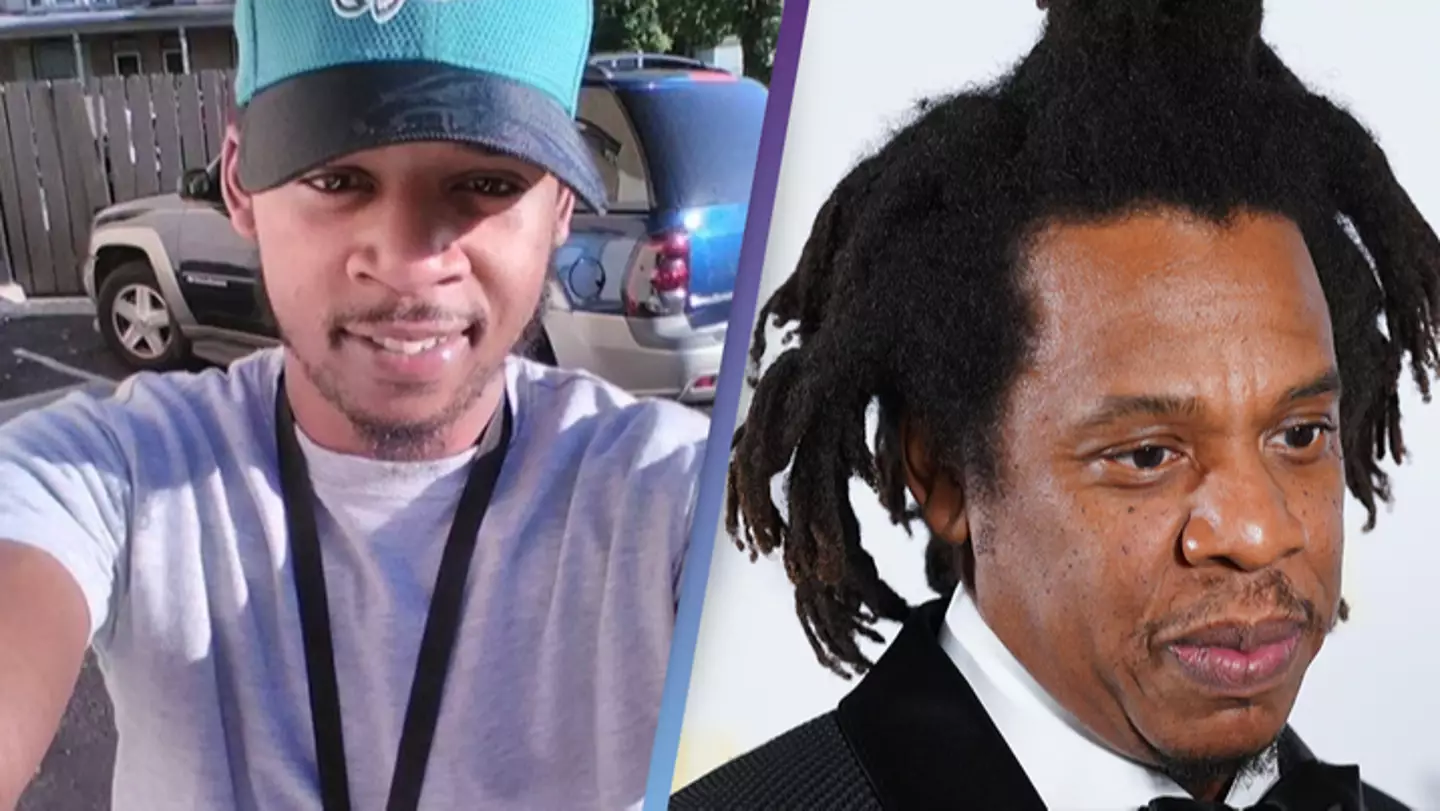Decades‑Long Claim Surfaces Again
For more than 14 years, Rymir Satterthwaite, now 31, has maintained that he is the biological son of Jay-Z—born from a relationship in 1992 when his mother, Wanda, was only 16 and the rapper was 22. In May 2025, Rymir escalated his legal fight by filing a federal lawsuit, accusing Jay-Z and New Jersey judges of colluding to suppress his paternity claim and avoiding DNA testing

A Federal Court Breakthrough
In a courtroom milestone, a federal judge refused to dismiss Rymir’s lawsuit, allowing his paternity claim to proceed. This is the first clear judicial victory in years and paves the way for potential DNA testing .

Rymir’s Emotional Plea for Justice
Rymir took to the media with heartfelt statements:
“This is not about greed or spectacle—it’s about uncovering the truth and ensuring all parties are held accountable.”
He stressed that his pursuit isn’t for money, but for acknowledgment and a foundation for personal identity.

Allegations of Systemic Obstruction
The lawsuit alleges several disturbing tactics:
Judicial collusion: Rymir claims Jay-Z misrepresented residency to dismiss prior suits
Legal harassment: Illegal liens on Rymir’s property, contempt orders, and financial attacks amounting to over $100,000 in losses

Intimidation: He alleges threats, surveillance, and even a drive-by shooting targeted at him in New Jersey
These accusations portray an aggressive campaign to suppress the truth.

Jay‑Z’s Strong Rebuttal
Jay‑Z has forcefully denied the claims, calling them “fabricated allegations” and accusing Rymir and his godmother of “decades‑long harassment.” He noted that courts previously rejected these assertions and warned that the plaintiffs have already been held in contempt
Beyoncé’s Strategic Silence
Notably, Beyoncé has refrained from any public comment. Analysts interpret her silence—and absence of any supportive public gesture—as a deliberate distancing strategy, likely intended to contain the controversy and protect family unity.
Public and Social Media Reactions
The case has sparked widespread online debate:
Supporters argue Jay‑Z should simply take a DNA test to settle matters:
“If he refuses to do a paternity test that makes me believe that really is his kid.”

Others caution: celebrities shouldn’t be automatically compelled into endless paternity claims without due cause.
Redditors noted the striking resemblance between Rymir and Jay-Z and criticized the rapper’s apparent reluctance to validate paternity

High-Stakes Legal Frontiers Ahead
With the lawsuit now permitted to proceed, the following steps loom large:
DNA testing: A court order could compel Jay‑Z to submit to genetic testing—a moment that could settle this once and for all.
Unsealing records: Rymir is pushing to unlock sealed 2012–2023 case files in New Jersey to shine a light on what he describes as judicial suppression.
Potential settlement or ruling: Confirmation may lead to emotional closure—and could trigger discussions of acknowledgement or financial share.

Broader Implications
This case cuts deep:
Celebrity accountability: Rymir’s victory challenges how the rich and famous can leverage courts to maintain privacy.
Legal precedence: A forced DNA test might establish stronger rights for children in paternity disputes—regardless of the parent’s fame.
Cultural conversation: It raises complex questions about fatherhood, identity, and the responsibilities of public figures.
Final Verdict: A Truth-Seeking Son vs. Iconic Authority
Rymir Satterthwaite’s emotional plea is not rooted in greed, but in searching for identity—and any shred of familial connection. With a federal court now validating his pursuit, the possibility of a DNA test looms as a crucial step toward resolution. Jay-Z’s defense remains firm, but a single genetic swab could unshackle years of confounding legal gamesmanship.
The next chapter hinges on whether the court orders testing—and if so, whether Jay-Z complies. Society will be watching closely: will science trump influence? Will truth finally emerge?






